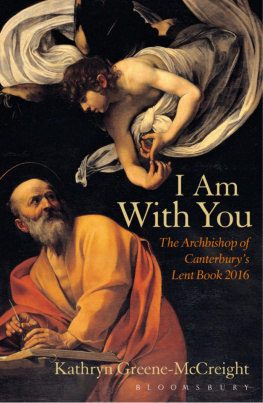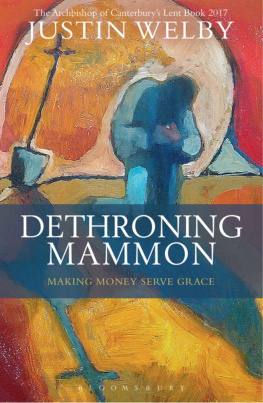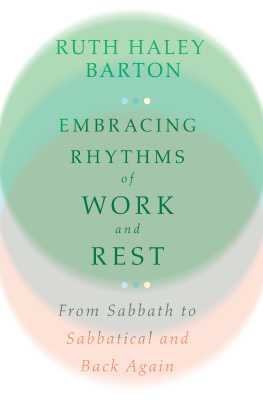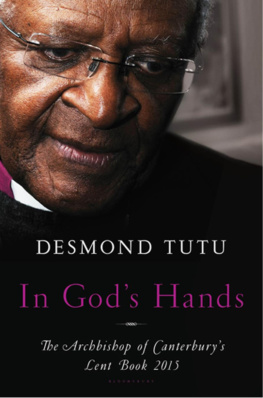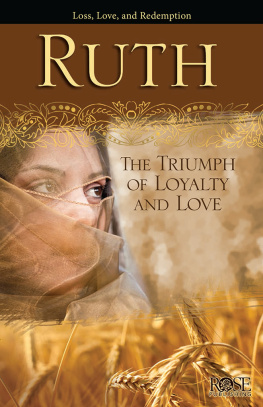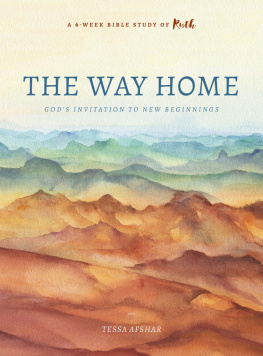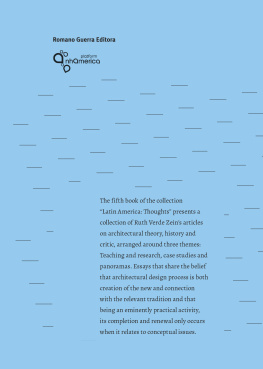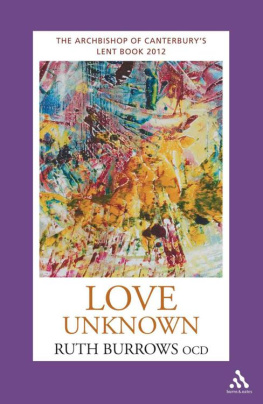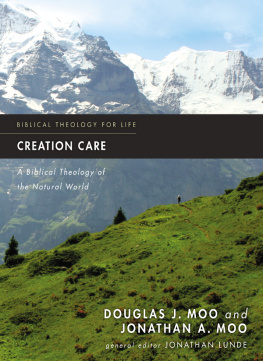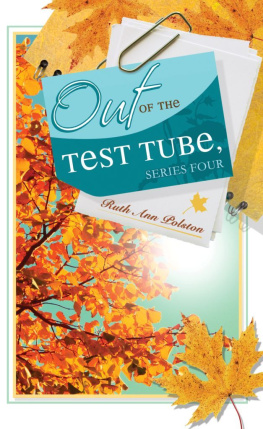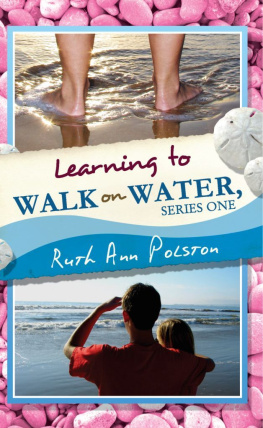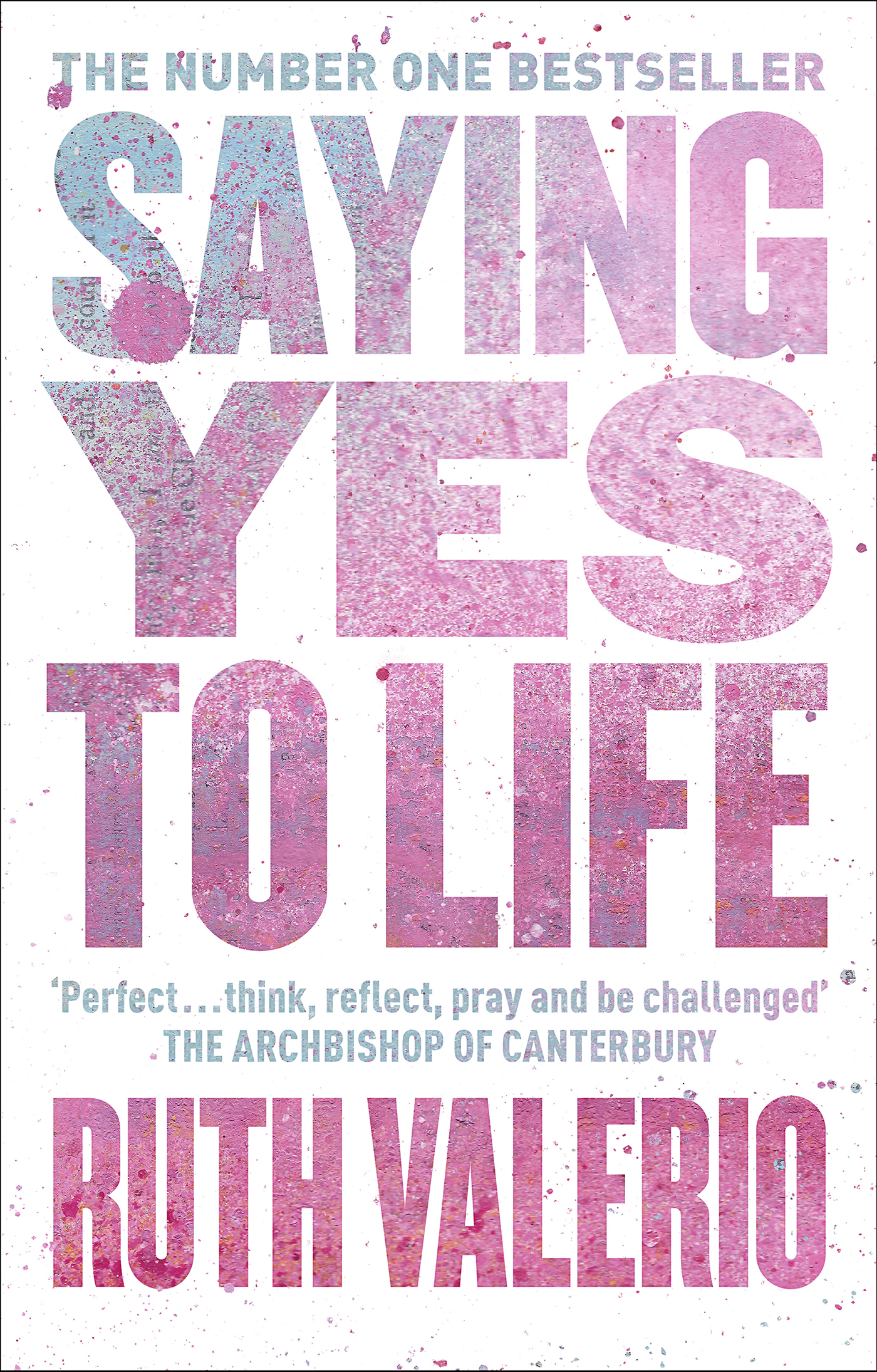Dr Ruth Valerio is Global Advocacy and Influencing Director at Tearfund. An environmentalist, theologian and social activist, Ruth holds a doctorate from Kings College London, and honorary doctorates from the Universities of Winchester and Chichester. She is Canon Theologian at Rochester Cathedral and her home church is part of the 24/7 Prayer Network. She enjoys living sustainably practising what she preaches and inspiring others as she does so in the south of England with her family. She is the author of L is for Lifestyle: Christian living that doesnt cost the earth and Just Living: Faith and community in an age of consumerism .
All royalties from the sale of this book will be used to support Tearfunds work in the places of greatest need.
Originally published as the Archbishop of Canterburys Lent Book 2020.
With deep appreciation for Peter and Miranda Harris, Susanna and Chris Naylor
First published in Great Britain in 2020
Reprinted in 2020
Society for Promoting Christian Knowledge
36 Causton Street
London SW1P 4ST
www.spck.org.uk
Copyright Ruth Valerio 2020
All rights reserved. No part of this book may be reproduced or transmitted in any form or by any means, electronic or mechanical, including photocopying, recording, or by any information storage and retrieval system, without permission in writing from the publisher.
SPCK does not necessarily endorse the individual views contained in its publications.
Unless otherwise noted, Scripture quotations are taken from the HOLY BIBLE, NEW INTERNATIONAL VERSION. Copyright 1973, 1978, 1984 (inclusive language version, 2001 edition) by International Bible Society. Used by permission of Hodder & Stoughton, a division of Hodder Headline Ltd. All rights reserved. NIV is a registered trademark of International Bible Society.
UK trademark number 1448790.
British Library Cataloguing-in-Publication Data
A catalogue record for this book is available from the British Library
ISBN 9780281083770
eBook ISBN 9780281083787
Typeset by The Book Guild Ltd, Leicester, UK
First printed in Great Britain by Jellyfish Print Solutions
Subsequently digitally printed in Great Britain
eBook by The Book Guild Ltd, Leicester, UK
Contents
Foreword
At the beginning of Lent in 2017, I travelled to Fiji to attend a meeting of the primates of the Anglican Communion in the Oceania region. Fiji is a place that has already begun to see the devastating consequences of climate change. Water levels have been rising, forcing populations to relocate, and cyclones have devastated communities. It was while I was there that one of the primates said to me, so memorably, that For you Europeans, climate change is a problem for the future. For us, it is a problem of everyday survival.
As part of the global church we are called to care not just for Gods creation, but for our brothers and sisters all over the world who face having their families uprooted and their livelihoods destroyed by the effects of climate change. Every single one of us has a responsibility as part of our discipleship to Jesus Christ to live a life that cares for Gods world and its creatures. As Psalm 24 reads, The earth is the Lords, and everything in it, the world, and all who live in it; for he founded it on the seas and established it on the waters.
Sadly, Christians have not always given Gods creation the reverence it deserves. The Old Testament offers us a picture of human beings as intimately linked to their environment, where their actions have a profound effect on the land, and they are held responsible for it, from the dominion of Genesis to the covenant with Noah that holds them accountable for the blood of every creature, to the laws of Leviticus and Deuteronomy and their concern for the land. The idea of dominion has been interpreted by some Christians to mean that we can do whatever we want to the land that it is ours to exercise our control and power over, whatever the cost. Yet this is profoundly mistaken, and fails to note the heavy responsibility laid on human beings, and their complete interdependence with creation, which means there is no space for human flourishing outside of the flourishing of the natural world.
It is of the utmost importance that we now stand in solidarity together, repenting of our sins towards our earth and committing to face our responsibilities as Gods people. As people of faith, we cannot just say what we believe. We are obliged to live out the life that Christ calls us to live, to care for our neighbours, for the creatures and the creation that God has so generously given us.
We all know that sin is the state of being estranged from God. But in mistreating and abusing his creation, Gods gift to us, we are also estranged. There is a need to rebuild our relationship with our planet so that we might rebuild our relationship with its creator.
Lent is a time for us to focus on Jesus death and resurrection, and our reconciliation and atonement with God through his sacrifice. This year, I hope you might spend some time thinking about our reconciliation with Gods creation as we explore the creation story of Genesis 1 together. Ruth Valerios book is perfect for individuals and groups to think, reflect, pray and be challenged together.
The most frequent command in the Bible is Do not be afraid! God isnt saying everythings fine, there is nothing to be afraid of when he commands us not to fear. He is acknowledging that life is scary, and sometimes we are rightly afraid when we are confronted with such existential issues. But God is beside us, working with us in our communities and our churches, in our politics and our governments and he will not leave us to face our fears alone. This Lent is an opportunity for us to consider and respond to Gods call, to live a life that is caring and restorative. We rise to the challenge with optimism and perseverance, alongside our fellow Christians from around the world, so that we might live lives that are led by Christ and shaped by the Holy Spirit, in deep reverence for Gods creation.
+ + Justin Cantuar
Lambeth Palace, London
A note on COVID-19
Saying Yes to Life was written before COVID-19 sent the world into lockdown and life as we knew it changed. Nonetheless, I have received message after message from people telling me how relevant and salient they have found the ideas in the book, and how it has helped to sustain them through this time. A number have pointed out the aptness of Justin Welbys words as he assures us in his Foreword that God will not leave us to face our fears alone.
In Saying Yes to Life , three key themes emerge. First, God. A pandemic such as we are experiencing raises questions concerning who and where God is. The book affirms that God is a God of love, who pours out that love in endless creative generosity. We cannot say God caused COVID-19 or that this is Gods judgement visited on us. While the Bible indicates that there can be times when someones sickness is the result of personal sin, there is nothing automatically linking illness with sin so we must never think that illness is a basis for stigmatization and rejection.
Second, we live in a wounded but wonderful world. Although COVID-19 is not Gods judgement, the Bible is clear that God, people and the wider natural world are deeply interconnected, and if that set of relationships is broken, this will have an impact on everything. As hard as it is to hear, the outbreak of COVID-19 is not a natural disaster. Rather, it is a disaster of our own making. Viruses jump species and are caught by humans. Environmental destruction contributes to this happening with greater frequency as people are brought into close contact with virus-carrying animals. Deforestation, mining, the bushmeat trade, animal trafficking and unsustainable agricultural practices are all likely factors at play, and each is considered in this book. The desperation of poverty and the greed of wealth underpin a global system that is fundamentally at odds with Gods original intention of shalom between all things.


